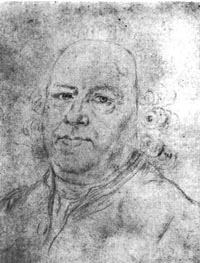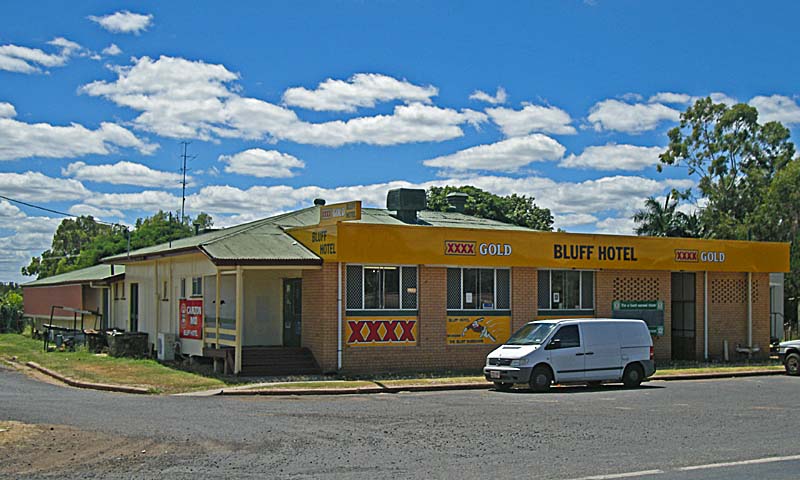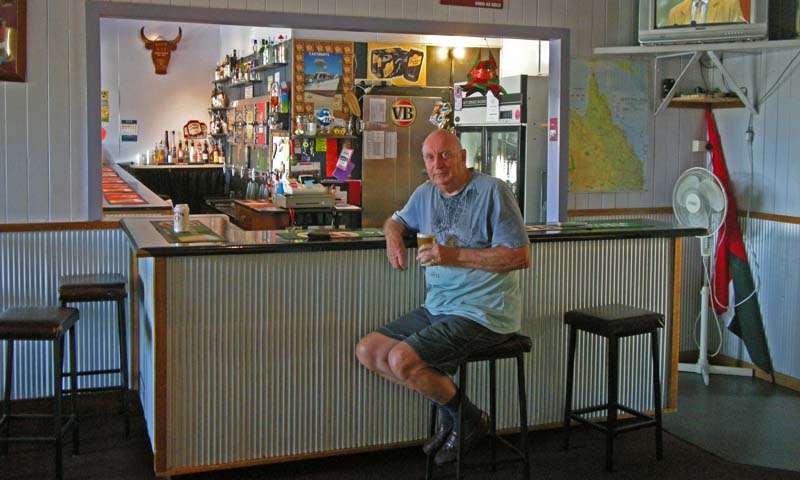|
Biographical Log of Michael Furstner - Page 77
2008 ||
2009 :
Jan |
Feb |
Mar |
Apr |
May |
Jun |
Jul |
Aug |
Sep |
Oct |
Nov |
Dec | Page :
Previous |
Next |
Most Recent -
Next -
Previous -
Page 1 -
Photos -
Index -
Topics -
MP3s -
Jazclass Links
Saturday and Sunday March 21 & 22, 2009
(diary, music)
 Al through the night and into the morning we have heavy downpours of rain. And when I
wake up Saturday morning I hear the noise of the water fall disgorging the
overflow from the lowest of the ThreePonds dams down into the valley. As the day
progresses blue sky gradually emerges, interrupted now and then by the odd brief shower.
I have lunch at the Surf Club as usual, reading John Steinbeck's
delightful novel Sweet Thursday (the sequel to "Cannery Row").
Al through the night and into the morning we have heavy downpours of rain. And when I
wake up Saturday morning I hear the noise of the water fall disgorging the
overflow from the lowest of the ThreePonds dams down into the valley. As the day
progresses blue sky gradually emerges, interrupted now and then by the odd brief shower.
I have lunch at the Surf Club as usual, reading John Steinbeck's
delightful novel Sweet Thursday (the sequel to "Cannery Row").
In the evening Doug is off to the Palmwoods
Hotel Blues night while Babette and I have a nice long father and daughter chat
together. Suddenly we remember that it was my son Jeroen's birthday on Wednesday (March 18), so we ring him
immediately and have a chat. Jeroen and his wife Lisa have just started on Tuesday
their second IVF attempt and all is going according to plan so far. We are keeping our
fingers crossed.
 When I was writing about interior decorating the other day,
the thought struck me, strange as this may seem, that composing and music improvisation are
in a sense also an unusual kind of interior decorating.
When I was writing about interior decorating the other day,
the thought struck me, strange as this may seem, that composing and music improvisation are
in a sense also an unusual kind of interior decorating.
Let me explain :
There are two events in history which have made Western music of all styles
(Classical, Jazz, Pop, Latin, Heavy Metal, etc.) what it is today.
Firstly it was the Greek philosopher Pythagoras who
(around 550 BC) discovered the acoustic and mathematical basis for the millennias old pentatonic scale, previously found
and used intuitively by many different cultures around the globe.
By extending this scale with two additional notes he formed a 7-note scale which forms
the basis of all Western modes and scales used up to this very day.
Then, more than 2,000 years later Johann
Sebastian Bach (by means of his two albums of "Preludes and Fugues for the
Well tempered Clavier") broke down a 350 year long resistance of the Roman Catholic
Church to changing the original Pythagorean tuning system.
The Church preached
that the mathematical basis of this system (featuring the numbers 1 for the tonic, 1/2
for its octave and 2/3 for its fifth) was "God given" and should therefore not
be tampered with. This had been their argument ever since around 1350, when an obscure
Italian monk had proposed a better system, now known as the Well tempered tuning
system.
It was Bach who in 1718 finally got this new improved tuning system
accepted. As a result music could now (for the very first time) modulate from one key to another while intervals
and chord qualities (the characteristic sound of each chord) remained the same in every
key. The concept of music harmony was born as a result of it.
 Ever since those days the principle building blocks of music composition and
improvisation of all styles (Classical, Jazz, Pop, etc.) have remained the same. They
consist of our well known 7-note major scale, plus a few less common minor scales and a
handful of chords (in many cases aligned in Circle of Fifths order) providing the typical Western music
harmonies.
It are these basic elements the professional composer or improvisor uses, "arranges"
like objects in a room to produce a pleasing effect.
Ever since those days the principle building blocks of music composition and
improvisation of all styles (Classical, Jazz, Pop, etc.) have remained the same. They
consist of our well known 7-note major scale, plus a few less common minor scales and a
handful of chords (in many cases aligned in Circle of Fifths order) providing the typical Western music
harmonies.
It are these basic elements the professional composer or improvisor uses, "arranges"
like objects in a room to produce a pleasing effect.
I always am acutely aware of this when improvising myself on the keyboard. Improvisation is
NOT a process guided by emotions, on the contrary, emotions are best left out off it
altogether as it invariably results in poor music. Improvisation (and composition)
requires a cool alert mind which makes continuous lightning fast decisions and choices,
often guided by intuition. The emotional facial expressions and body language of stage performers
are purely put on for the benefit of the audience, as punctuations and emphasis of their music. But
these are "faked orgasms" only. Underneath a performer must be cool, alert and in control
of what he is doing.
I believe that my talent for interior decorating and my ability to effortlessly create
well flowing melodic lines in improvisation are very closely connected. Both are based
on an intuitive sense for dimensional proportions, angles and above all harmonious
balance. The only difference being that the one skill is guided by the eye, the other by the ear.
Has nothing changed then at all in Western music since 1718 ? Certainly not in mainstream
music. But roads have been forged into unexplored new territory ever since Impressionism
around 1900. Erik Satie and many of his contemporaries where experimenting with new
scales, chords, harmonies, sounds, and this process is still continuing.
Olivier
Messiaen,
Pierre Boulez,
The Kronos
Quartet,
Rainer
Brüninghaus (in Jazz) and many others are leading the way, but they remain
largely unknown to the mainstream audiences of the present day. In time this will change.
Modern soundscapes behind movies and contemporary ballets (such as Complexions) are leading the
way towards a gradual better appreciation of the music of the future by the general
public.
Most Recent -
Next -
Previous -
Top -
Page 1 -
Photos -
Index -
Topics -
MP3s -
Jazclass Links
Monday - Wednesday March 23 - 25, 2009
(diary)
 I am very very tired, so will be brief.
I am very very tired, so will be brief.
On Monday I started packing up
my car and after a late lunch went to get my cystoscopy done by the Urologist. It is
definitely not something you enjoy having done all too often. Getting a tiny camera
pushed up your waterworks is not a comfortable feeling. Fortunately it went quick and
my bladder is in a good and healthy state. For several days after the event however one
experiences a burning feeling when passing fluids. Many glasses of "Ural" help as they
reduce the acidity.
Tuesday my last morning at the Diddilliba Bridge Club, saying goodbye to Mel in
her sunglasses shop at the Sunshine Plaza, and to the staff at the Mooloolaba Surf Club.
In the evening I pack the last bits and pieces in my car and am ready to go.

I leave Wednesday morning very early at half past 4 in the morning. At the last
moment I decide to take the northern route along the coast to Rockhampton, then west inland
towards Longreach. I get to
Rocky at about 10, refuel and then continue west. After 175 km I get to a small hamlet
called Bluff.
Way back in 1967, when I was a geologist with BHP a went on an
informative tour with the coal geologist (Alister Maclean) in charge of exploration
drilling (for coal) in this area. We then stayed a whole week at the Bluff Hotel and had a wonderful time
there. The hotel is still there and inside it is the same as I remember it from back
then, as I find out when having a quick beer there today.
After a brief lunch in Emerald I drive through some absolutely magnificent ranges (must check what they are called) and I arrive at the Landsborough Lodge in Barcaldine (100 km short of Longreach) at 4.30
in the afternoon. A total of 1,120 kms today, and a full 12 hours in the saddle,
including over an hour of rest stops, not bad.
In the evening I revisit the Artesian
Hotel for a dinner of rissoles, not bad, but not quite as good as I remember them
from last time. They have different cook today I seem to remember, perhaps that has something to do with it.
Comments -
Most Recent -
Next Page -
Previous -
Top -
Page 1 -
Photos -
Index -
Topics -
Jazclass Links
Copyright © 2009 Michael Furstner
|




